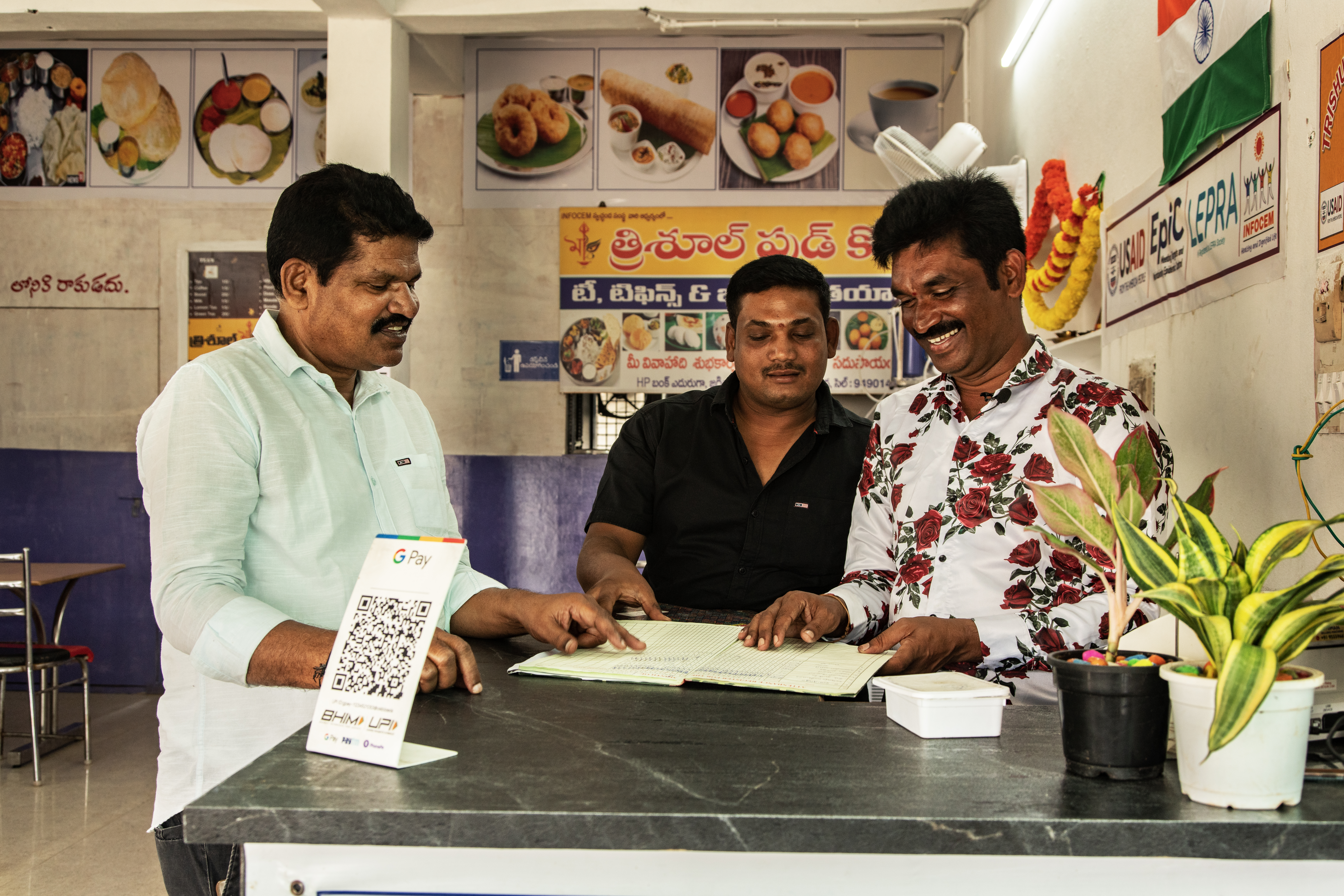Mahesh Satraj, President, Integrated Network of Community Empowerment
The death of a friend who had been unable to access essential HIV medicines and services, along with concern about the living conditions of some community members in the Vemulawada area of Karimnagar district, Telangana, India, compelled a group of us to establish the Integrated Network of Community Empowerment (INFOCEM). Our aim: To enhance the quality of life for vulnerable populations.
Our key population-led organization was established in January 2020 with minimal funding. In our first year, we were able to reach 1,200 community members with a range of vital services, including nutrition support; general health education; psychosocial support; counseling on sexual orientation and gender identity; children’s education; HIV, TB, and STI treatment follow up; and COVID-19 vaccination.
In May 2021, INFOCEM was awarded a grant of around Rs. 300,000 (around USD 3,600) from Solidarity Foundation. With this funding, we were able to increase our impact in 2022, reaching around 3,800 individuals in key populations and other vulnerable community members. However, to sustain our work and serve others in our community, we knew we had to grow and attract additional donors.
In April 2021, we partnered with YR Gaitonde Care — a civil society organization (CSO) working under the U.S. Agency for International Development (USAID) funded Accelerate Project — to receive human resources for a project in Siricilla district of Telangana supporting men who have sex with men (MSM) and the transgender community. Because INFOCEM is working in one of the U.S. President’s Emergency Plan for AIDS Relief (PEPFAR) priority districts, the Meeting Targets and Maintaining Epidemic Control (EpiC) project (funded by the PEPFAR and USAID) asked us to collaborate to strengthen our organizational capacity.
The EpiC project conducted a baseline assessment of INFOCEM in October 2021, and we jointly identified areas requiring capacity strengthening support. As part of the capacity strengthening, INFOCEM leadership participated in workshops covering various topics, such as organizational governance and strategy, finance management, resource mobilization, and monitoring and evaluation. Technical assistance was provided by Lepra Society and FHI 360. The EpiC district coordinator made regular mentoring visits to INFOCEM, assisting us in overcoming the gaps identified during the organizational assessment. The EpiC team provided guidance on developing financial and community-friendly HR policies in the local language (Telegu) and supported us to obtain the proper certifications for CSOs and meet the minimum statutory compliances needed for government and corporate funding.
EpiC also supported INFOCEM to work with Bridge Communications, a communications agency, to enhance our branding and visibility. With this agency, we developed our website and promoted social media messaging with QR codes that allows supporters to donate directly through these scannable codes.
Since its inception, INFOCEM has seen growth and diversification in funding.
- INFOCEM secured social contracting funding (wherein the government outsources services to a non-governmental entity) to provide HIV services to MSM in Telengana. EpiC supported INFOCEM in preparing the proposal, the annual action plan, and a budget. In February 2023, INFOCEM was awarded the two-year project with an annual budget of Rs. 16,27,000 (USD 20,000).
- In May 2023, INFOCEM established a community kitchen as a social enterprise with seed funding from USAID through EpiC and with technical assistance in business planning from Sattva. The community kitchen in Vemulawada initially generated Rs. 3,000 to 4,000 per day. Soon after the launch of the kitchen, we used pamphlet distribution and poster placement on auto-rickshaws and public spaces to increase awareness about the kitchen. Income has now increased to Rs. 7,000 to 8,000 per day. Currently income is used to cover some of the operating cost of the kitchen. Our goal is that by the end of its third year, the kitchen will be able to reinvest its profits into INFOCEM to support financial sustainability and benefit the community it serves.
- In July 2023, INFOCEM applied to be a sub-sub-recipient (SSR) for the COVID-19 Response Mechanism (CRM-19) project under The Humsafar Trust (HST). The organization turned to EpiC for assistance in the preparation and submission of expression of interest documents. In August, INFOCEM was selected as the SSR for the CRM project, with an allocated budget of Rs.21,18,000 (US $ 25,500).
Within three years of society registration, INFOCEM has grown tremendously. As of September 2023, we had successfully raised Rs. 45,00,000 (US $55,000) — an incredible leap from a zero budget in 2021. We now have 150 staff members working on different donor-funded projects. We are especially proud of our diverse funder portfolio — governments, corporations, and our own social enterprises. This has helped us to realize that strong systems, good governance, and unified and driven leadership can make a big difference to our organization and in our community.
The importance of more established projects and organizations nurturing young CSOs to become more sustainable cannot be overstated. We extend our heartfelt thanks to USAID, the EpiC project, FHI 360, Lepra Society, and Sattva for uplifting our organization and providing continuous support.
Featured image: INFOCEM staff reviewing the community kitchen ledgers (Photo credit: Anita Khemka for EpiC).

